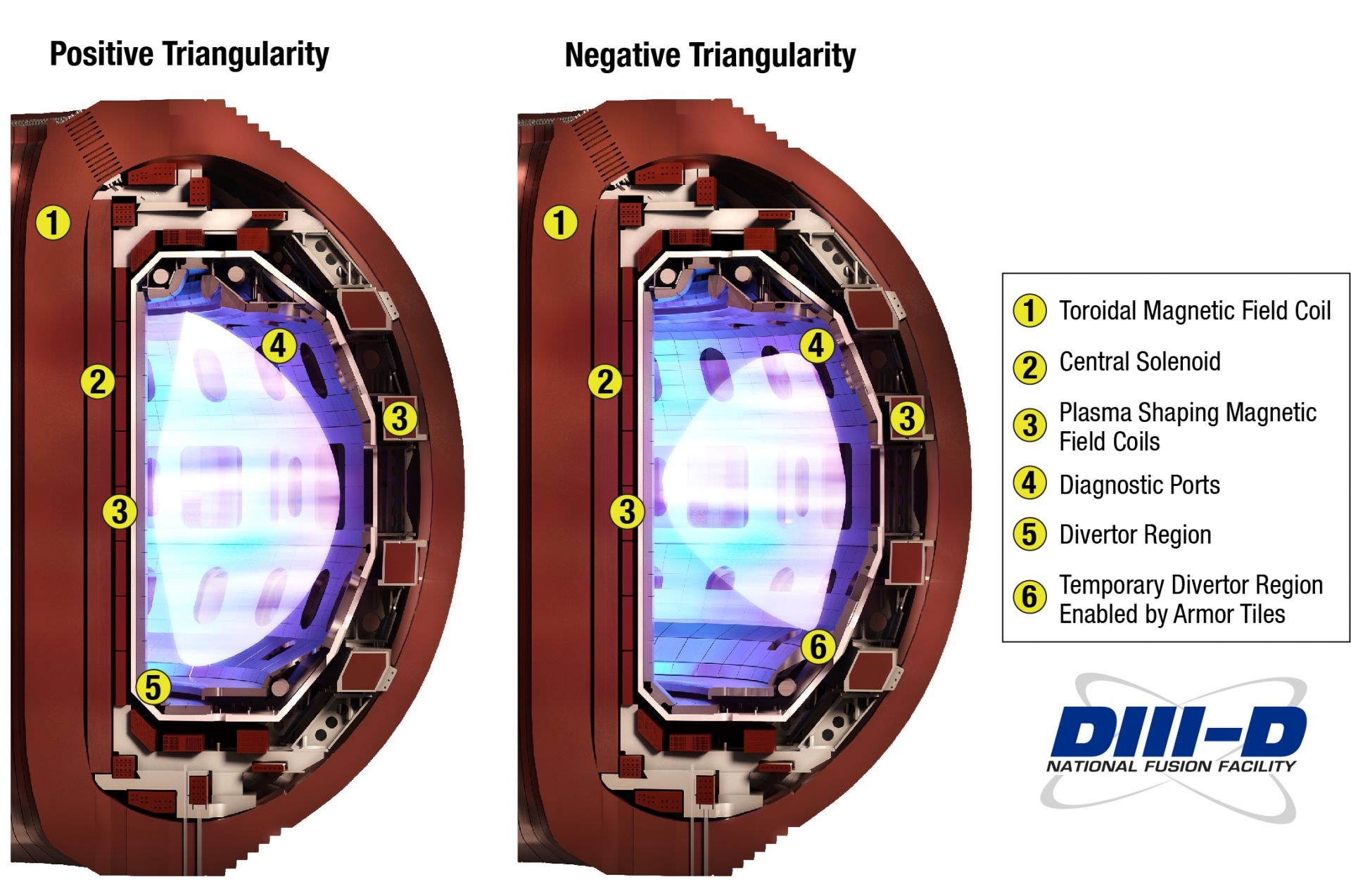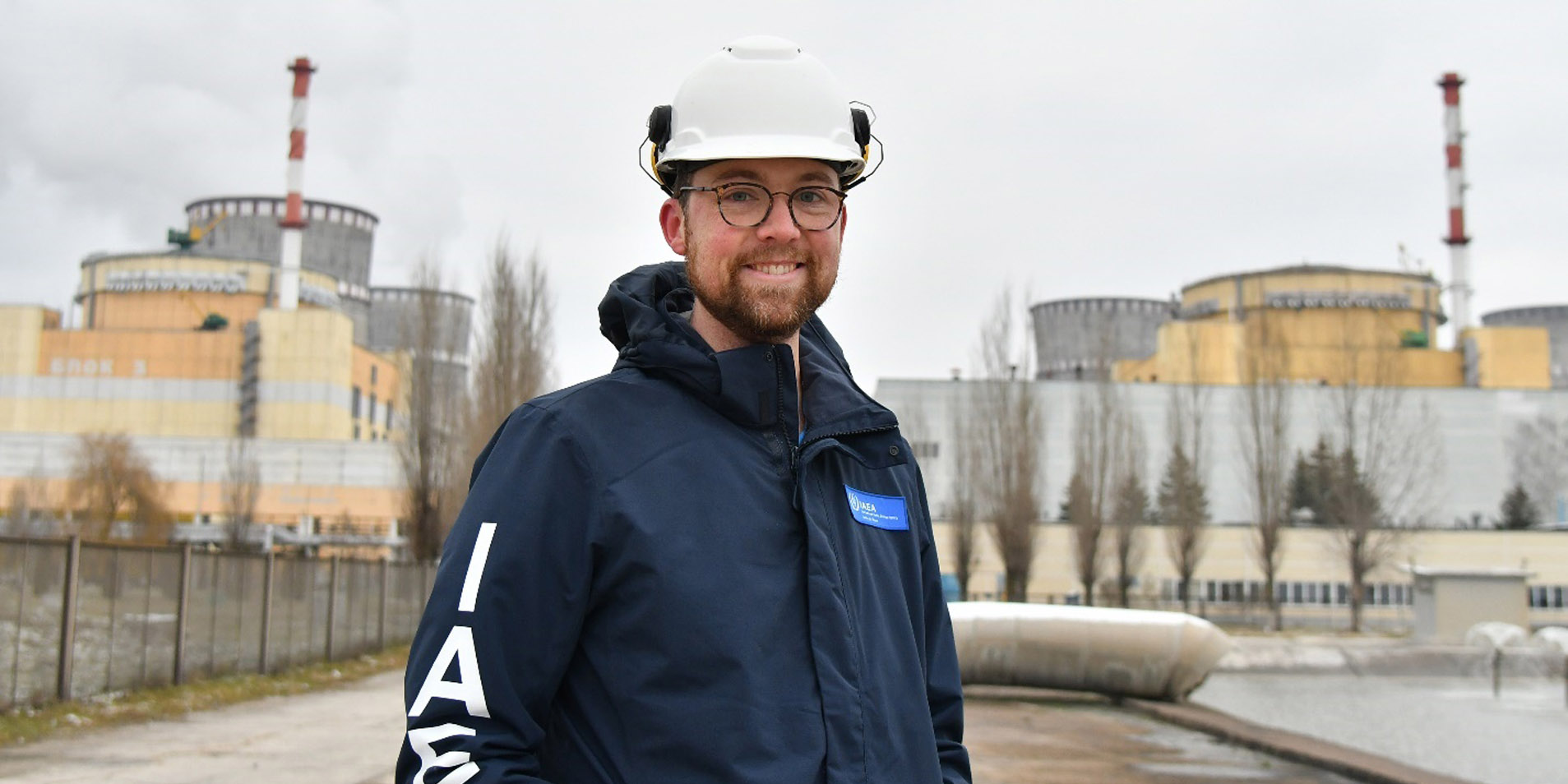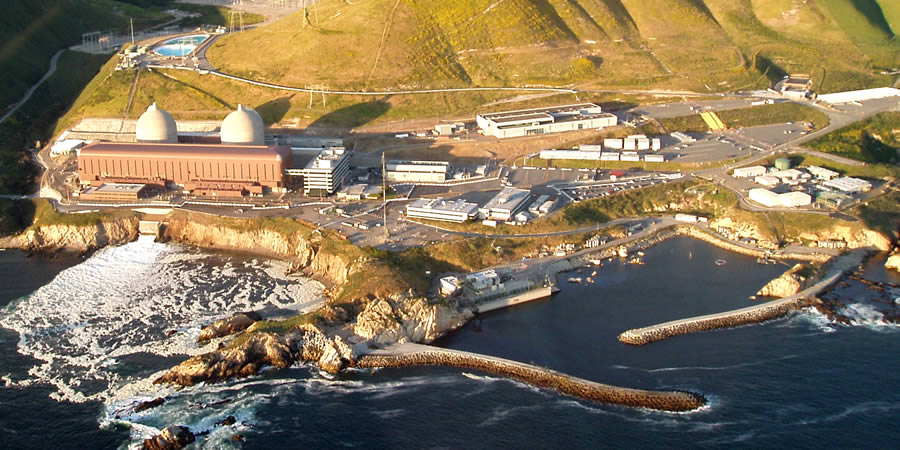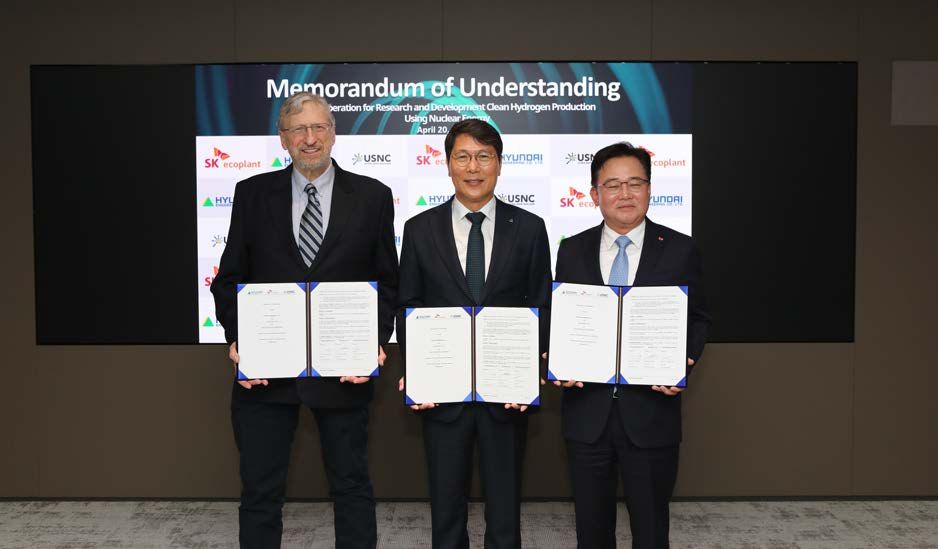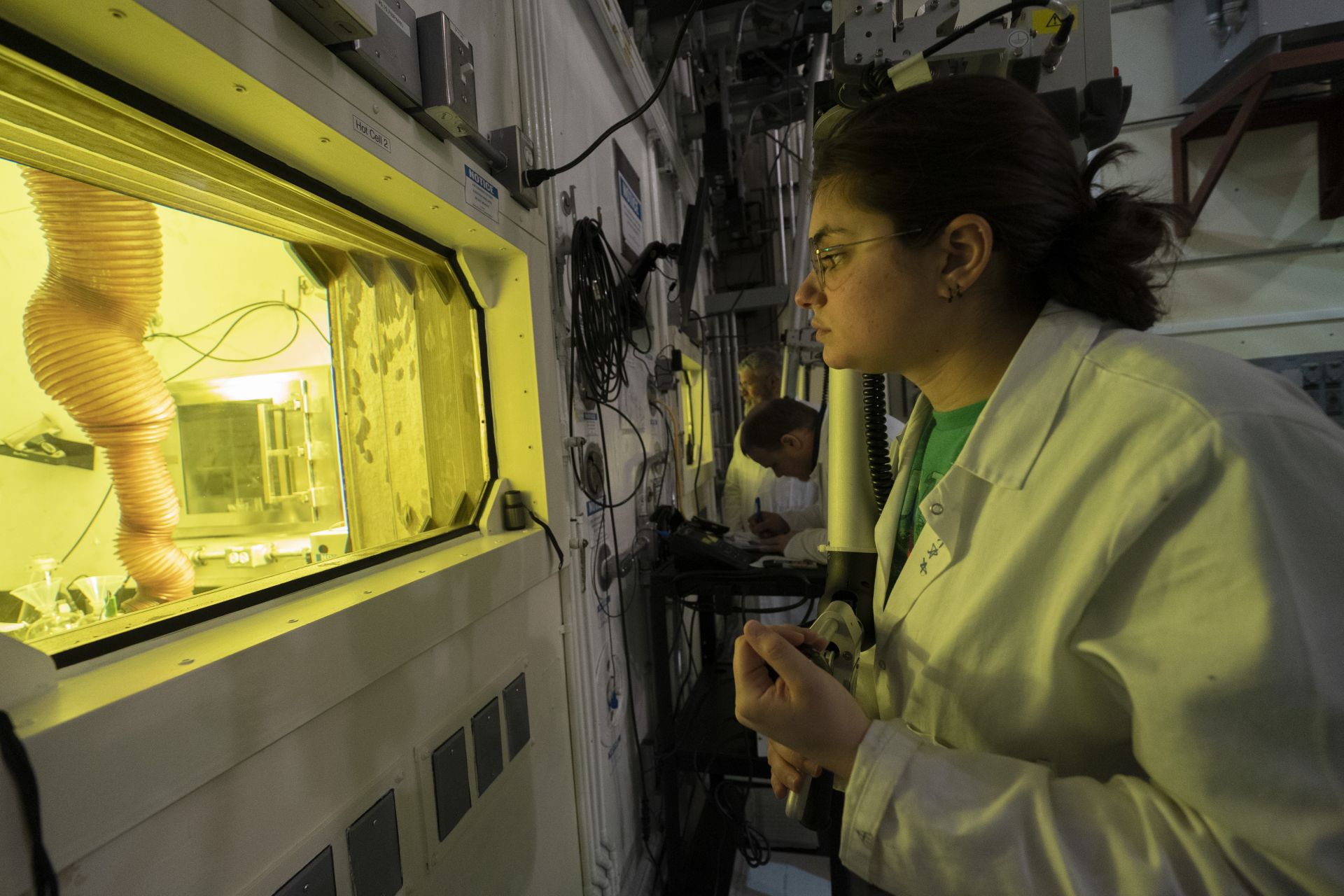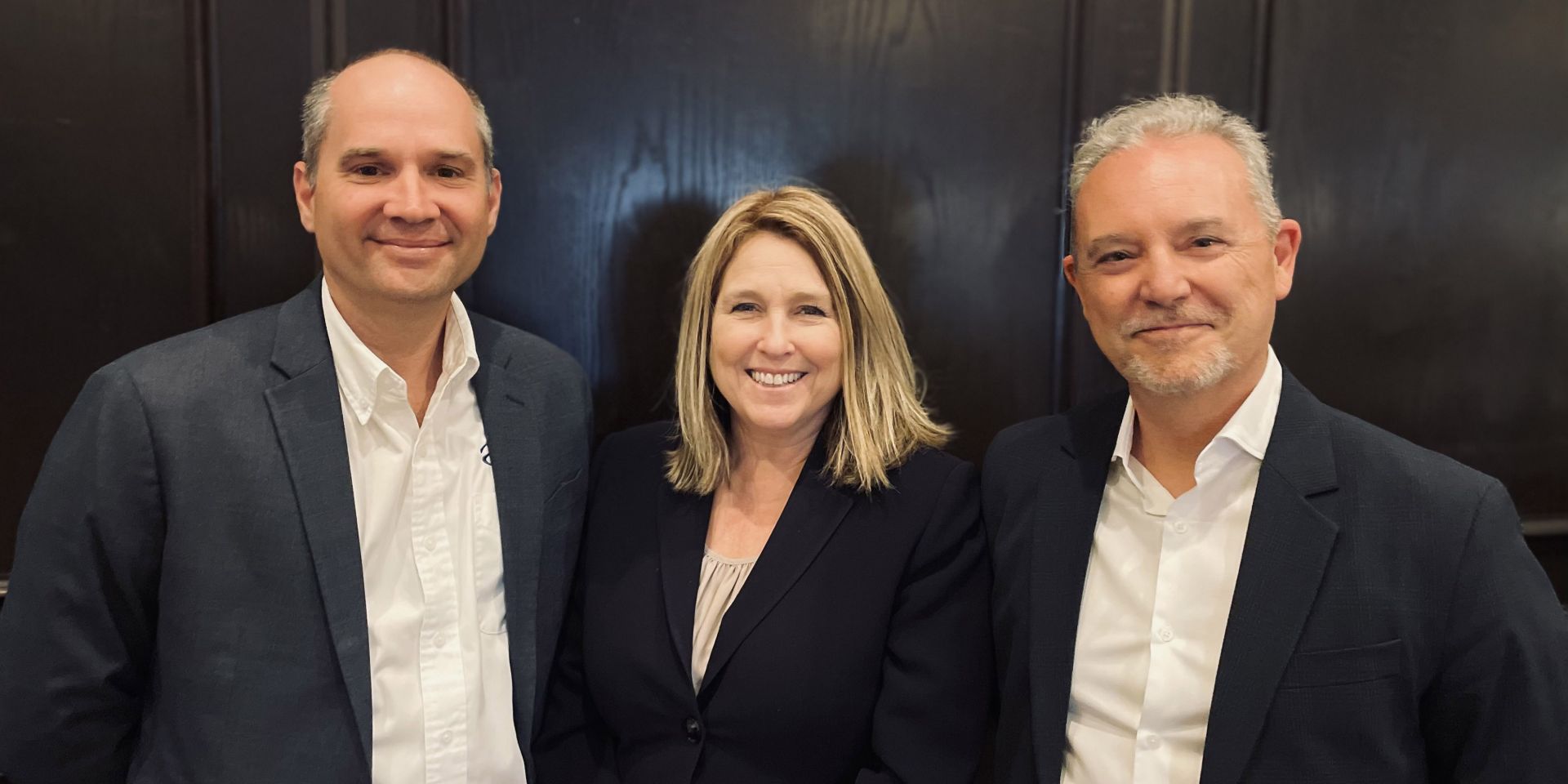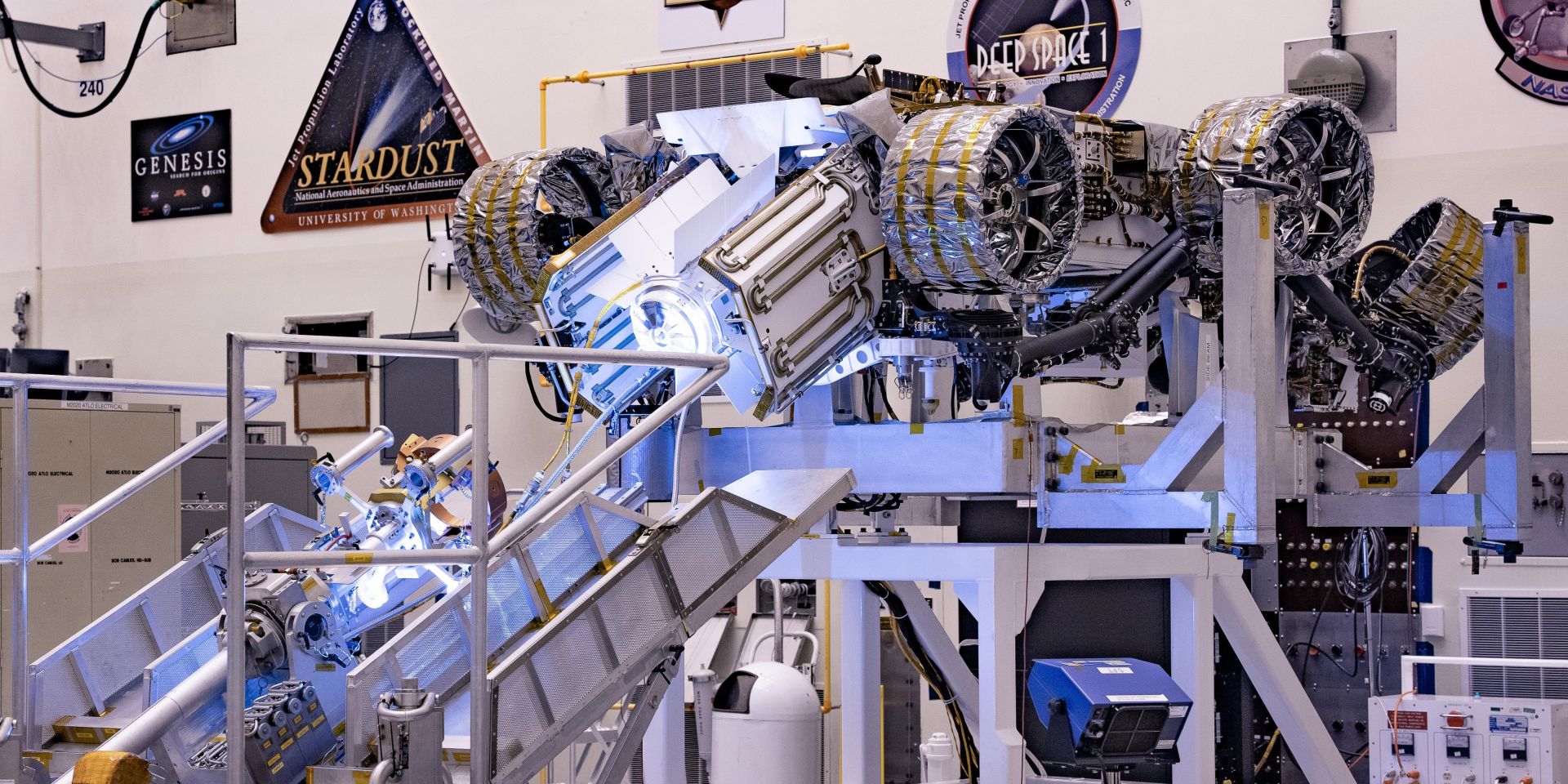The North Carolina Senate on April 26 unanimously (48–0) endorsed a measure that, if signed into law, would open the door to new nuclear development in the state—both fission and fusion.
The Promote Clean Energy bill (S.B. 678)—introduced just this month and now with the state’s House for consideration—replaces the term “renewable energy” in statutory language with “clean energy” and adds nuclear to the new term’s definition.
SHINE’s Mo-99 production building under construction in October 2022. (Photo: SHINE)
Fusion development company SHINE Technologies announced that it will begin offering radiation effects testing in a dedicated facility on the company’s Janesville, Wis., campus later this year. SHINE will use high-energy fusion neutrons to test mission-critical components that are susceptible to radiation-harsh environments on behalf of its aerospace and defense customers.
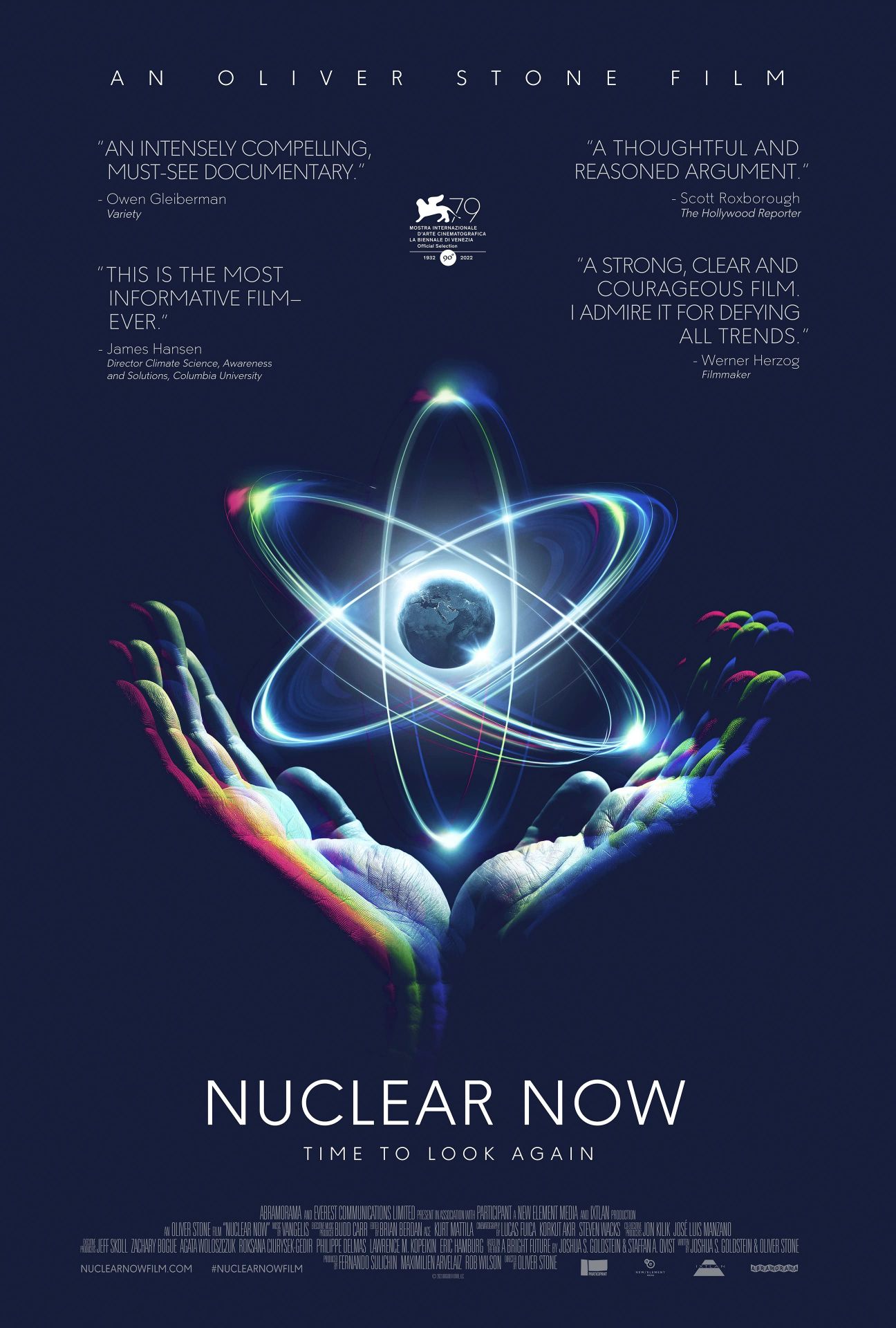 Academy Award–winning director Oliver Stone has long courted controversy with such films as Born on the Fourth of July, JFK, Natural Born Killers, and Nixon. His latest release is sure to continue that trend. In Nuclear Now, which opens today in theaters nationwide, Stone “explores the possibility for the global community to overcome the challenges of climate change and energy poverty to reach a brighter future through the power of nuclear energy,” according to the movie’s website.
Academy Award–winning director Oliver Stone has long courted controversy with such films as Born on the Fourth of July, JFK, Natural Born Killers, and Nixon. His latest release is sure to continue that trend. In Nuclear Now, which opens today in theaters nationwide, Stone “explores the possibility for the global community to overcome the challenges of climate change and energy poverty to reach a brighter future through the power of nuclear energy,” according to the movie’s website.
The documentary’s perspective on nuclear energy is summarized on the site as follows: “In the mid-20th century as societies began the transition to nuclear power and away from fossil fuels, a long-term PR campaign to scare the public began, funded in part by coal and oil interests. This campaign would sow fear about harmless low-level radiation and create confusion between nuclear weapons and nuclear energy. Looking squarely at the problem, Oliver Stone shows us that knowledge is the antidote to fear, and our human ingenuity will allow us to solve the climate crisis if we use it.”
NuScale Power and TerraPower both signed agreements earlier this week with South Korean entities to support development of the American firms’ respective reactor technologies.
A south-facing view of the Dillard Science and Engineering Research Center at Abilene Christian University, scheduled for completion in the summer of 2023. The new facility will provide space for ACU’s NEXT Lab, as well as for research in chemistry, physics, and engineering.
Abilene Christian University’s Nuclear Energy eXperimental Testing (NEXT) Lab continues to make progress toward building a molten salt research reactor (MSRR) on the university’s campus. NEXT Lab submitted an application for a construction permit to the Nuclear Regulatory Commission last August, and in November the agency announced it had docketed the application—the first for a new research reactor in more than 30 years.
April 27, 2023, 9:30AMUpdated April 27, 2023, 9:30AMNuclear News At table, from left: Navid Samandari, chief executive officer of Seaborg Technologies; Jooho Whang, CEO of KHNP; and Jintaek Jeong, CEO of Samsung Heavy Industries. (Photo: Seaborg Technologies)
Denmark-based Seaborg Technologies, developer of the compact molten salt reactor (CMSR), has teamed with two South Korean firms—shipbuilder Samsung Heavy Industries (SHI) and nuclear plant owner and operator Korea Hydro & Nuclear Power (KHNP)—to form a consortium for the development of floating nuclear plants featuring the CMSR. The consortium agreement was signed in Seoul on April 20.
The Department of Energy’s Office of Nuclear Energy released an updated version of its consent-based siting process on April 25. The DOE will use the process to engage with willing communities to site one or more consolidated interim storage facilities for commercial spent nuclear fuel, reducing the number of locations where spent fuel is stored and easing the burden on U.S. taxpayers.
Earthbound air travel can be a hassle, even for careful planners. So if you’re heading to the Moon or beyond, it’s time to shift your planning into hyperdrive. Our advice, when there’s no guidebook, no proven vehicle, and your destination is a moving target? Don’t forget to pack your nuclear power bank.
April 26, 2023, 12:00PMEdited April 26, 2023, 12:00PMNuclear News LLNL design physicist Annie Kritcher is honored as one of the TIME100 Most Influential People. (Photo: Blaise Douros/LLNL)
Physicist Andrea “Annie” Kritcher’s dedication to fusion target design has earned her a spot on the TIME100 Most Influential People list for 2023. Today, Kritcher and 99 other individuals on that list—among them Elon Musk, King Charles, Judy Blume, Patrick Mahomes, Beyoncé, Lionel Messi, Janet Yellen, and MrBeast—are being honored at the TIME100 Summit and Gala at the Lincoln Center in New York City.
 The Nuclear Decommissioning Authority, the governmental organization responsible for the cleanup and decommissioning of the United Kingdom’s 17 nuclear sites, has released its business plan for the fiscal years running from April 1, 2023, through March 31, 2026. The plan provides a summary of the activities and progress the NDA expects to make at its nuclear sites over the next three years.
The Nuclear Decommissioning Authority, the governmental organization responsible for the cleanup and decommissioning of the United Kingdom’s 17 nuclear sites, has released its business plan for the fiscal years running from April 1, 2023, through March 31, 2026. The plan provides a summary of the activities and progress the NDA expects to make at its nuclear sites over the next three years.
In introducing the report, NDA group chief executive officer David Peattie wrote, “This business plan sets out a challenging program of work, reducing hazards while contributing to a globally significant sustainability agenda, developing our people, and supporting our communities.”
The full report Nuclear Decommissioning Authority Business Plan: 1 April 2023 to 31 March 2026 can be found here.
A side-by-side comparison of a standard plasma configuration (at left) and the plasma created during the negative triangularity campaign at DIII-D, which was made possible by the installation of a temporary divertor region. (Image: General Atomics)
The DIII-D National Fusion Facility in San Diego, Calif., has completed a monthlong research campaign using a negative triangularity plasma configuration inside its fusion tokamak and produced initial data that “appear very encouraging,” according to an April 24 news release from General Atomics (GA), which operates the Office of Science user facility on behalf of the Department of Energy. Full experimental results on “the highest-powered negative triangularity experiments in the history of the U.S. fusion research program” are expected this summer, according to GA.
Kris Singh (front left), Holtec International president and chief executive officer, signs the cooperation agreement between Holtec and Ukraine’s Energoatom, alongside other Holtec officials. (Photo: Holtec)
Small modular reactor developer Holtec International and Energoatom, Ukraine’s nuclear plant operator, signed a cooperation agreement last Friday that envisions the construction of up to 20 of the American firm’s SMR-160 units in Ukraine, with grid connection for the pilot project achieved by March 2029. In addition, the agreement calls for building a Ukrainian manufacturing facility to localize the production of equipment required for SMR-160 construction.
Olsen was part of the IAEA team that inspected the Rivne nuclear power plant in Ukraine last year. (Photo: IAEA)
Student members are the future of the American Nuclear Society, and ANS believes in the importance of supporting students those who have shown academic, service, and leadership excellence as they navigate their early careers. Robert Olsen, now a nuclear security officer with the International Atomic Energy Agency in Vienna, Austria, was one such beneficiary.
The Diablo Canyon nuclear power plant.
The Nuclear Regulatory Commission announced that an agency licensing board will hold oral arguments in a challenge to Pacific Gas and Electric’s application to renew its license for the Diablo Canyon independent spent fuel storage installation in California.
The arguments, which will be open to the public, will be heard by an NRC Atomic Safety and Licensing Board on May 24 beginning at 1 p.m. eastern time.
Various officials (back row) look on at the fuel supply contract signing in Sofia, Bulgaria. Front row, from left: Angie Darkey, Uranium Asset Management’s managing director; Boris Schucht, Urenco CEO; Tim Gitzel, Cameco president and CEO; and Aziz Dag, Westinghouse senior vice president of global BWR & VVER fuel business.
Canada’s Cameco and U.K.-based Urenco last week jointly announced the signing of agreements to become part of a Westinghouse-led fuel supply chain for Bulgaria’s Kozloduy nuclear power plant. (Also included in the partnership is Uranium Asset Management.)
From left: Francesco Venneri, chief executive officer of USNC; Hong Hyun-seong, CEO of Hyundai Engineering; and Park Kyung-il, CEO of SK ecoplant, following the signing of an MOU for the construction of a hydrogen micro hub. (Photo: USNC)
Seattle’s Ultra Safe Nuclear (USNC) has announced a partnership with two South Korean firms—Hyundai Engineering and SK ecoplant—for research and development on carbon-free hydrogen production. The three companies signed a memorandum of understanding on April 20 regarding the construction of a “hydrogen micro hub” at SK ecoplant’s headquarters in Seoul’s Jongno-gu district.
A member of Brookhaven’s MIRP team in the new hot cell area used for processing targets to make medical isotopes such as actinium-225. (Photo: BNL)
A refurbished hot cell laboratory is allowing the Department of Energy’s Brookhaven National Laboratory to streamline the production and shipment of actinium-225 to support clinical trials of cancer therapies.
 Here is a recap of industry happenings over the past months:
Here is a recap of industry happenings over the past months:
ADVANCED REACTOR MARKETPLACE
Ultra Safe and Framatome reach TRISO agreement
Ultra Safe Nuclear and Framatome have signed a nonbinding agreement to manufacture commercial quantities of TRISO fuel for advanced reactor designs, including USNC’s Micro Modular Reactor. It is expected that the manufacturing of both TRISO fuel particles and USNC’s fully ceramic microencapsulated fuel will begin in late 2025, with production capacity being made available to the broader global commercial market. At-scale production lines for these materials have been demonstrated at USNC’s Pilot Fuel Manufacturing facility in Oak Ridge, Tenn., the first privately funded producer of TRISO fuel particles in the United States.
From left: Billy Mack, president of Accelerant Solutions; Pamela Cowan, president of global engineered systems and solutions at Westinghouse; and Francisco Sanchez, vice president of safety, operation, and training at Tecnatom, after signing the teaming agreement creating the Nuclear Excellence Academy. (Photo: Westinghouse)
Westinghouse Electric Company has signed an agreement with engineering firm Tecnatom and training/consulting services provider Accelerant Solutions to launch a nuclear training program for utilities in the United States and Canada. (Westinghouse completed a 50 percent acquisition of Spain-based Tecnatom in March of last year.)
The program—the Nuclear Excellence Academy (NEXA)—will combine Westinghouse and Accelerant Solutions’ industry expertise with Tecnatom’s digital products and services to provide in-person, digital, and on-demand training for nuclear personnel, according to an April 18 Westinghouse announcement.
April 21, 2023, 3:19PMNuclear NewsSal Oriti, Ernestina Wozniak, and Max Yang The multimission radioisotope thermoelectric generator for NASA’s Mars 2020 Perseverance rover is tested at NASA’s Kennedy Space Center in 2020. The choice of an MMRTG as the rover’s power system gave mission planners significantly more flexibility in selecting the rover’s landing site and in planning its surface operations. (Photo: NASA)
Under the Radioisotope Power Systems Program, NASA and the Department of Energy have been advancing a novel radioisotope power system (RPS) based on dynamic energy conversion. This approach will manifest a dynamic RPS (DRPS) option with a conversion efficiency at least three times greater than a thermoelectric-based RPS. Significant progress has recently been made toward this end. A one-year system design phase has been completed by NASA industry partner Aerojet Rocketdyne, which resulted in a DRPS with power of 300 watts-electric (We) with convertor-level redundancy. In-house technology development at the NASA Glenn Research Center (GRC) has demonstrated the conversion devices in relevant environments and has shown all requirements can be met. Progress has also been made on the control electronics necessary for dynamic energy conversion. Flight-like controllers were recently upgraded and achieved an 11-percentage-point increase in efficiency. Control architectures have been developed to handle the multiconvertor arrangements in the latest DRPS design. A system-level DRPS testbed is currently being assembled that will experimentally demonstrate the DRPS concept being pursued.


 Academy Award–winning director
Academy Award–winning director 
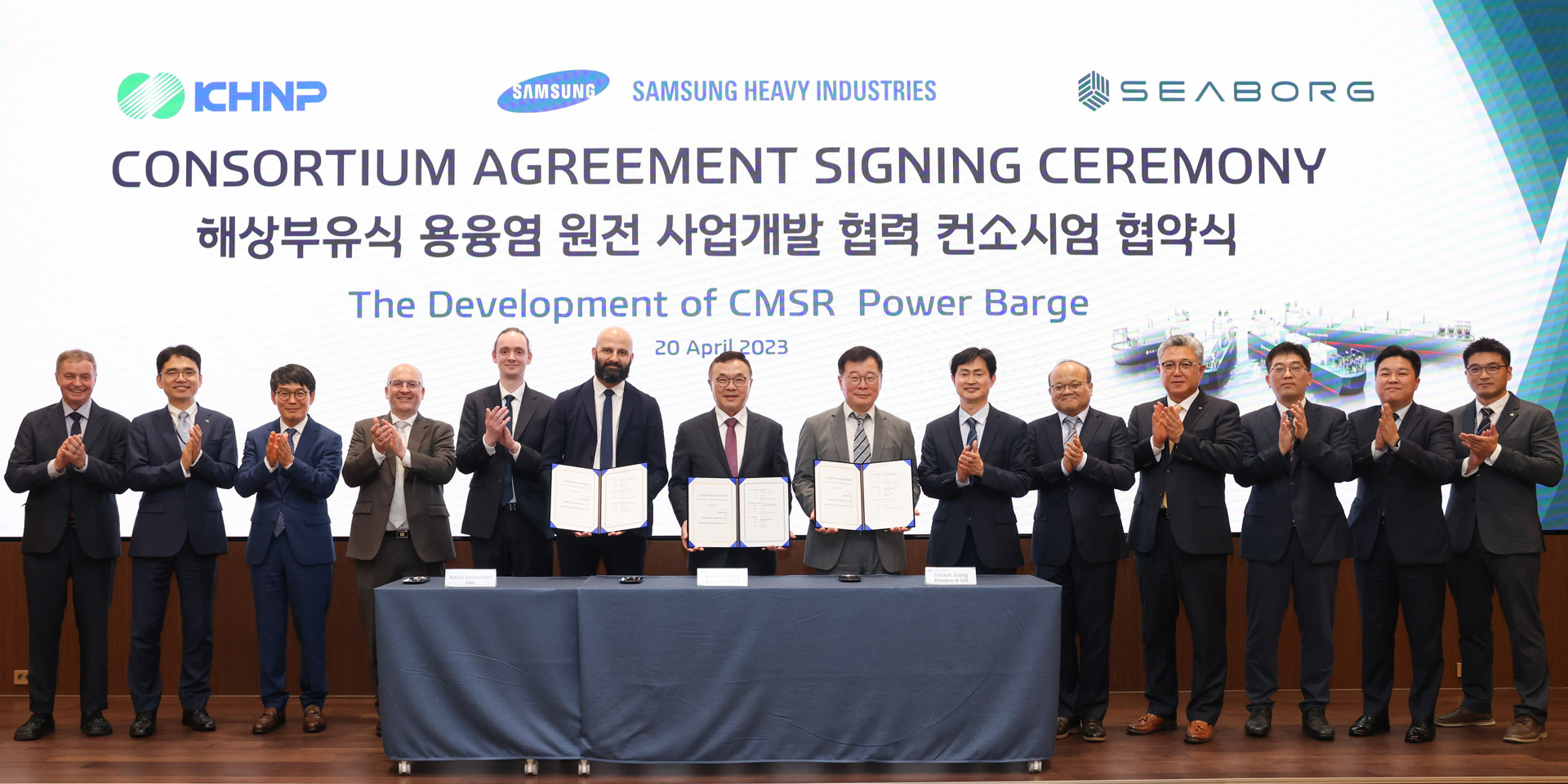


 The Nuclear Decommissioning Authority, the governmental organization responsible for the cleanup and decommissioning of the United Kingdom’s 17 nuclear sites, has released its business plan for the fiscal years running from April 1, 2023, through March 31, 2026. The plan provides a summary of the activities and progress the NDA expects to make at its nuclear sites over the next three years.
The Nuclear Decommissioning Authority, the governmental organization responsible for the cleanup and decommissioning of the United Kingdom’s 17 nuclear sites, has released its business plan for the fiscal years running from April 1, 2023, through March 31, 2026. The plan provides a summary of the activities and progress the NDA expects to make at its nuclear sites over the next three years.